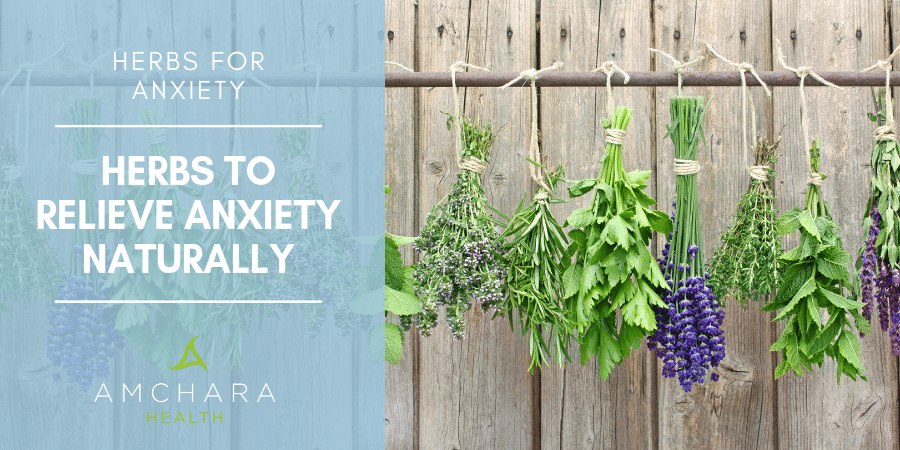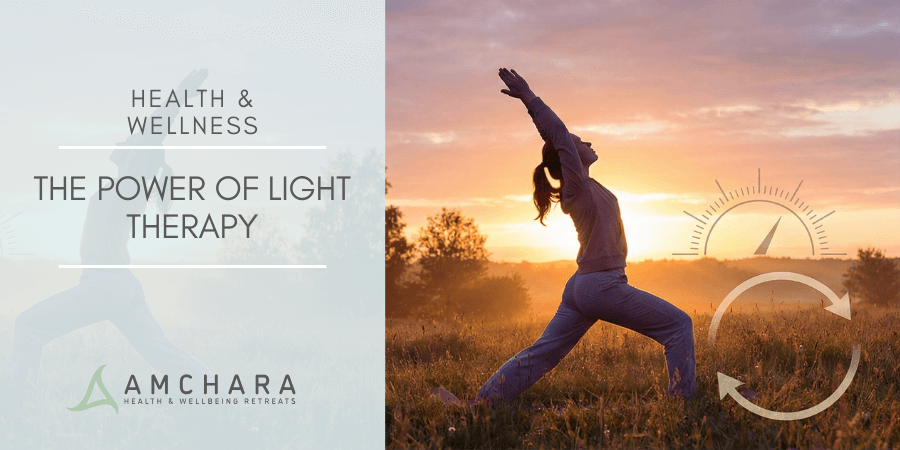Topics Covered in this article:
Stress, depression and anxiety are the most common types of mental health disorders.
Almost 6% of people in the UK suffer with generalised anxiety disorder (GAD) and nearly 8% have anxiety and depression (1).
There are many reasons why anxiety develops, and stress is cited as major factor.
Genetic predisposition to adverse responses to stress can increase the risk of symptoms like anxiety.
We always take an evidence-based approach and aim to provide you with knowledge and actionable tips to help you on your journey to optimal health.
In this article we take a look at how some traditional herbal remedies may be the key to relieving anxiety.
1. Lemon balm
Lemon balm, also called Melissa officinalis, is a herb found in southern Europe and the Mediterranean.
The leaves are used traditionally to improve memory and mood, and to reduce anxiety and stress.
Active constituents identified in lemon balm include polyphenolics, flavonoids and triterpenes, including rosmarinic acid, ursolic acid and oleanolic acid.
These compounds have been shown to inhibit an enzyme that can breakdown GABA (2), the major inhibitory neurotransmitter which exerts a calming effect.
Inhibiting the breakdown of GABA increases the availability in the brain, resulting in many effects including reducing anxiety.
Although lemon balm has been used traditionally for centuries, studies into the effects are predominantly in rodents.
One small human study on 20 volunteers, who were experiencing stress but otherwise in good health, found that lemon balm leaf extract resulted in improvements in anxiety in 70% of participants.
In addition, significant improvements in sleep patterns were observed (3).
This indicates that lemon balm may be effective for mild to moderate anxiety, particularly in the presence of stress and sleep disorders.
2. Passionflower
The herb Passiflora incarnata, more commonly known as passion flower, has been used to treat bruises and wounds by Native Americans and has also been used historically for nervousness, tension, fatigue and overactivity.
The strongest effects are said to be seen from the leaves of the plant and active constituents include amino acids and flavonoids such as chrysin.
In studies, passionflower shows much benefit in relieving anxiety. A study involving 36 patients with GAD indicated that passion flower was as effective at relieving anxiety as oxazepam, a type of benzodiazepine medication (4).
In this study passion flower was the preferred choice as no impairments in job performance were seen, unlike oxazepam.
Two studies, one of them a double blind placebo controlled study on the use of passion flower pre-operatively, showed that there was less pre-operative anxiety with passion flower use (5,6).
Both studies indicated that passion flower did not show sedative effects.
3. Valerian
Valerian (Valeriana officinalis), was used by the ancient Greeks and Romans as a remedy for headaches, insomnia and nervousness.
The main active constituents found in valerian are valerenic acid and valepotriates.
Many in vitro or rodent studies show that valerian compounds may support GABA pathways and increase available GABA in the brain, inducing a calming effect.
The use of valerian for insomnia show clear benefits and despite valerian being used traditionally as a nervine (a medicine to calm the nerves), there are only a few human studies into the effects of valerian on anxiety.
Studies that are available are of small size and often not placebo controlled.
Many studies involve several herbs in combination, making it difficult to isolate which herb provides the most benefit.
One small observational study did show significant reductions in anxiety in participants (7).
Although there may not be a definitive amount of data on the benefits of valerian for anxiety, given its use traditionally and much anecdotal evidence on the benefits, it is worth considering.
As valerian is also very useful for sleep patterns it is wise to be aware of its potential sedative properties and avoid using if driving or in other circumstances where a degree of concentration is required.
4. Skullcap
Research has identified that skullcap (Scutellaria) is rich in compounds such as diterpenoids, amino acids, essential oils and phenolic compounds.
Flavones appear to be the main constituents in skullcap and include baicalein, baicalin, chrysin and wogonin.
Historically, skullcap has been used for a variety of health issues, including supporting healthy menstrual function.
Its use as a nervine dates back to Native Americans and more recently studies show that the active constituents in skullcap can bind to GABA receptors and increase GABA levels (8, 9).
This may explain why American skullcap (Scutellaria lateriflora) may help to relieve anxiety (9) and also support mood (10).
5. Rhodiola
Rhodiola rosea is known as an adaptogen and supports the body in adapting to changes that occur when under stress, as well as aiding in strengthening the nervous system.
Adaptogens are useful for preserving or returning the body back to normal functioning when there are high demands.
Rhodiola is a well-researched herb and its benefits in stress, fatigue and even exercise performance are well known (11, 12).
A number of bioactive compounds have been identified in Rhodiola and these include phenolics, organic acids, flavonoids and tannins.
The main active constituents are collectively known as rosavins, and phenylethane derivatives such as salidroside.
In a study in generalised anxiety disorder participants were given 170mg of a standardised extract of rhodiola to be taken twice daily.
Their anxiety levels were measured at weeks 3, 6 and 10 and significant improvements were seen (13).
As Rhodiola is a useful herb in times of stress it could be a good choice for stress related anxiety.
6. Ashwagandha
Ashwagandha, (Withania somnifera), is a herb commonly used in Ayurvedic medicine and also known as Indian ginseng.
It is classed as an adaptogen like Rhodiola.
It offers much relief during times of stress and has been used traditionally as a tonic and to support nervousness and inflammation.
One study involving 64 participants taking 300mg of ashwagandha or placebo for 60 days showed a 75% reduction in symptoms of anxiety and stress (14).
Levels of the stress hormone cortisol were substantially reduced.
High circulating cortisol can give rise to many symptoms associated with stress.
7. Chamomile
A good cup of chamomile tea is well known to be useful for calming the nerves.
Traditionally chamomile was also used to settle the stomach.
There are two main types of chamomile – German chamomile (Matricaria recutita) and Roman chamomile (Chamaemelum nobile).
Chamomile contains a vast array of plant compounds including terpenoids and polyphenols such as apigenin, quercetin, patuletin, and luteolin.
Like many of the other herbs useful for relieving anxiety, chamomile may help to increase GABA availability (15).
A randomised, double-blind, placebo-controlled trial involving 57 participants tested the effects of a chamomile extract standardised to 1.2 % apigenin.
The results showed a significant reduction in anxiety following chamomile therapy (16).
8. Ginkgo
Ginkgo biloba is a tree species native to China and has long been used in herbal medicine.
The leaves of the plant contain many compounds including phenolic acids, antioxidant proanthocyanidins and flavonoids, as well as flavones unique to the ginkgo tree.
With a long use in supporting circulation, cardiovascular health and cognitive function, it also aids in relieving anxiety.
In a study observing the effect of two different doses of ginkgo in GAD, participants on the higher dose (480mg a day) showed greater improvements in anxiety.
The authors of the study suggest that ginkgo may be useful for anxiety related to cognitive decline (17).
Anxiety can range from a low level niggling feeling of unease right through to fear gripping panic.
The use of herbal remedies can aid in the management of anxiety.
Herbs may have potent effects and may interact with certain medication.
We’re dedicated to providing you with both insightful information and evidence-based content, all orientated towards the Personalised Health approach.
Did you find this article useful?
We would love to know your thoughts.
Let us know your top tips to help with anxiety.
READ THIS NEXT:




